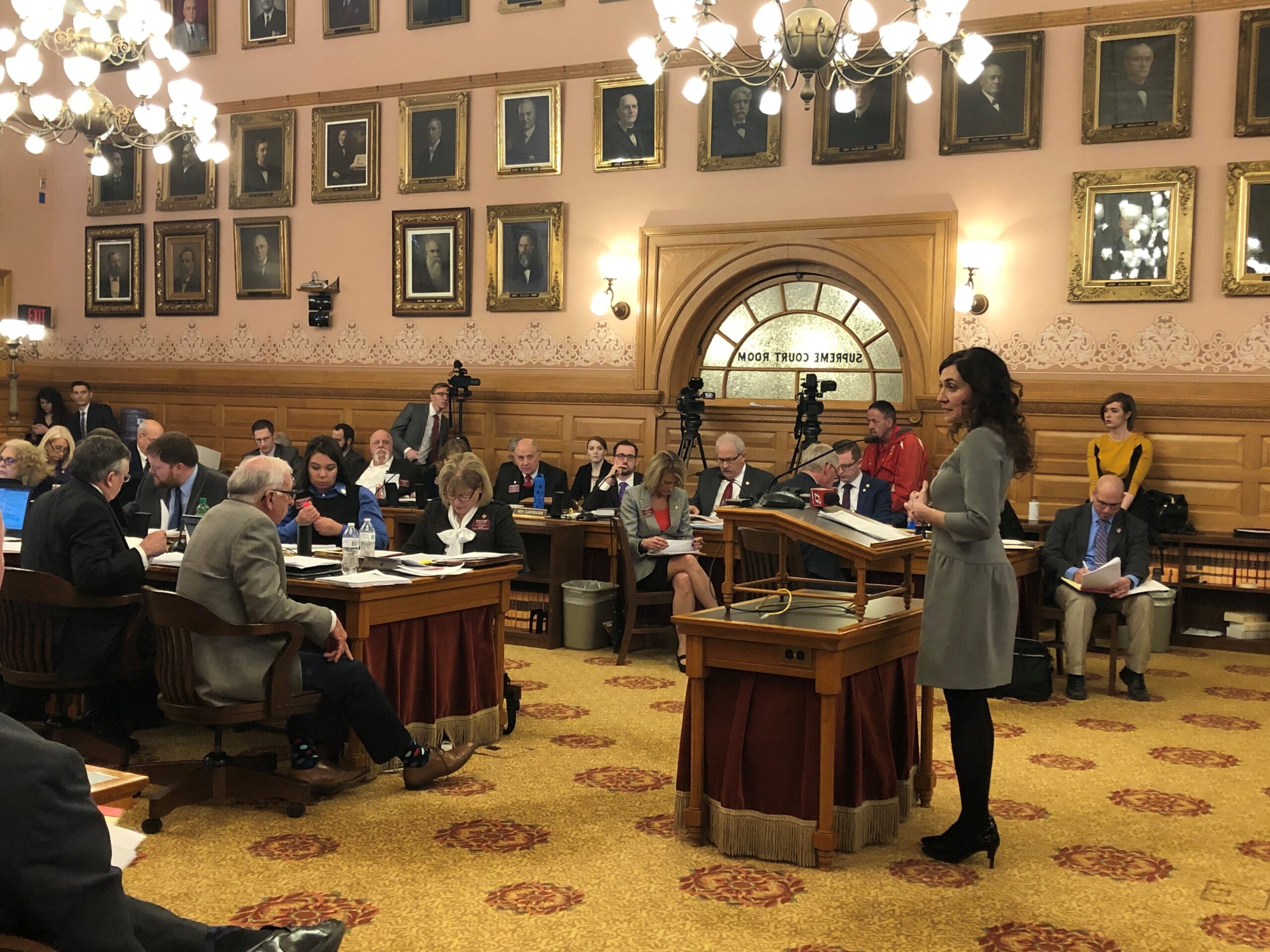Opposition to Constitutional Amendment That Would Restrict a Woman’s Personal Autonomy
- Session: 2020
- Latest Update: January 23, 2020

The ACLU of Kansas works to preserve and strengthen the constitutional liberties, including the right to reproductive freedom, of every person in Kansas. We have more than 35,000 supporters in this state. The ACLU of Kansas opposes the proposed constitutional amendment as an unacceptable infringement on a woman’s personal autonomy and her ability to make deeply personal medical decisions, and because it would subject fundamental individual rights and liberties to the whims of political popularity.
***
First, the proposed legislation seeks to restrict a woman’s personal autonomy in an attempt to re-write Kansas’s history. This is a state that was founded on Lockean beliefs of natural rights, with an emphasis on one’s freedom from government intrusion into personal choices.
As this committee knows, in its 6-1 decision in Hodes & Nauser, MDs, P.A. v. Schmidt, our state Supreme Court affirmed the natural right of personal autonomy as enshrined in the Kansas Constitution, and further affirmed the core principles of personal autonomy: asserting bodily integrity and control, to include medical treatment and family formation.[1]
The proposed constitutional amendment, if adopted, would discount the natural rights of women and the consequences women would face if Kansas did not continue to recognize that, as our state Supreme Court has held, the natural rights undergirding our Constitution apply in pregnancy.[2] The amendment would also undermine this state’s history of pioneering freedom and equality. Kansas is the Free State. It was Kansas that granted suffrage to women in 1912, eight years before the right was extended to all women by the federal government. And it was Kansas that was the first state to elect a woman to public office, in 1918.
Kansas should continue to honor its history and uphold its founding principles by continuing to respect the individual rights of all Kansans and championing equality and freedom for the protection of all individuals.
Second, the proposed amendment also poses an infringement upon a woman’s right and ability to make deeply personal medical decisions, with her family and her physician. In so doing, it puts politics above the safeguarding of a woman’s health.
Decisions about reproductive healthcare are private, health-based decisions. They are to be made in consultation with a medical professional, and not subject to the interference of politicians. Our laws should support and safeguard a woman’s health. Instead of limiting health care options, we need solutions that advance health and improve a woman’s ability to make the best reproductive health decisions for her, based on her circumstances. We do not need, nor should the legislature support, a pathway to political interference with these health decisions. Yet this amendment would pave the way for the legislature to seek to do just that, with new laws further encroaching upon what should be a private, medical matter.
Importantly, and contrary to the language of the proposed amendment, the Hodes decision does not deny the authority of the legislature to enact reasonable, medically-justified reproductive health-based regulations. Rather, it provides parameters for the legislature to propose regulations so long as they address genuine health considerations and are narrowly tailored to a compelling state interest. To permit otherwise, particularly with respect to medically unjustified restrictions on reproductive freedom, would constitute both unconstitutional discrimination against and the imposition of political will onto the women of Kansas.
Finally, the subject bill, in calling for a vote on this amendment, seeks to place fundamental civil rights and civil liberties—and specifically, individuals’ equality under law—on the ballot. This is a dangerous proposition. The foundation of our form of government is the adherence to the rights, liberty, and equality of all persons. Seeking political cover to undermine the equality of one group of persons creates a pathway for doing so for any other group as well.
***
The decisions of the United States Supreme Court and the Kansas Supreme Court confirm the right to individual freedom and bodily autonomy enshrined in our laws. To amend the Kansas Constitution to remove those rights from women in terms of their reproductive health would be an affront to the values reflected in our state’s founding. A constitutional amendment of this nature not only undermines our civil liberties, but it puts the health and safety of all women in jeopardy.
Given the deeply personal healthcare decisions this affects, the principles of gender equality and bodily autonomy that must be protected, and the danger of seeking to put fundamental constitutional rights and liberties to a vote, the ACLU of Kansas urges the legislature to oppose Senate Concurrent Resolution #1613.
[1] Hodes & Nauser, MDs, P.A. v. Schmidt, 309 Kan. 610, 671, 440 P.3d 461 (2019)(“[T]he inalienable natural right of personal autonomy… is the heart of human dignity. It encompasses our ability to control our own bodies, to assert bodily integrity, and to exercise self-determination. It allows each of us to make decisions about medical treatment and family formation, including whether to bear or beget a child.”).
[2] Hodes & Nauser, MDS, P.A. v. Schmidt, 309 Kan. 610, 650, 440 P.3d 461 (2019) (“[t]oday we hold our Kansas Constitution’s drafters’ and ratifiers’ proclamation of natural rights applies to pregnant women. This proclamation protects the right to decide whether to continue a pregnancy.”).
Stay Informed
Sign up to be the first to hear about how to take action.
By completing this form, I agree to receive occasional emails per the terms of the ACLU’s privacy statement.
By completing this form, I agree to receive occasional emails per the terms of the ACLU’s privacy statement.
